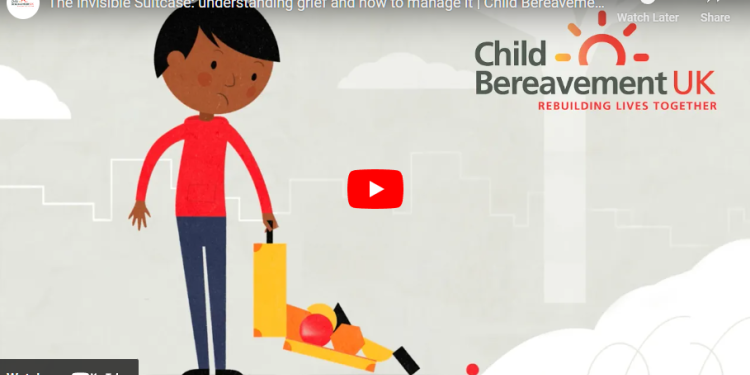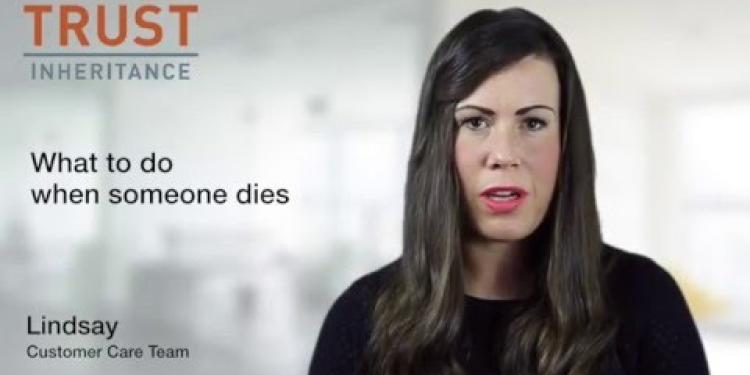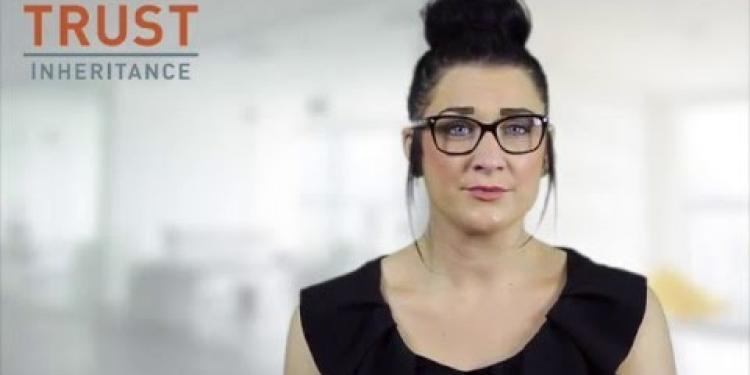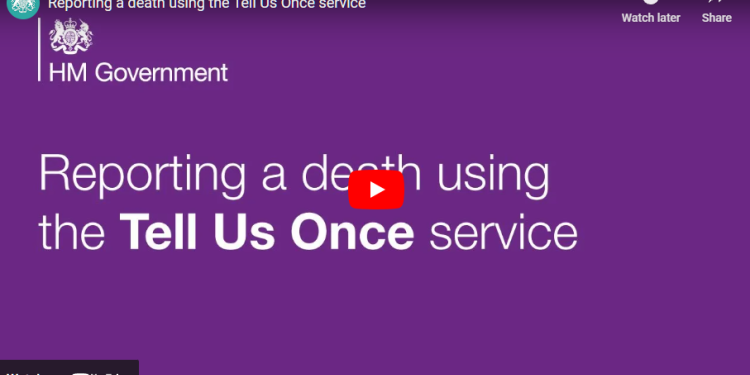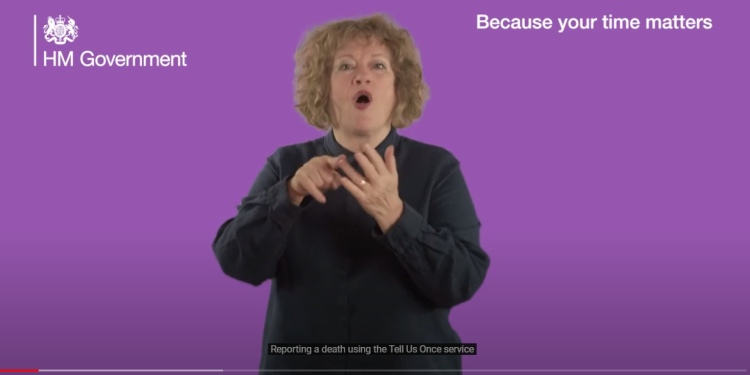Important Information On Using This Service
- Ergsy carefully checks the information in the videos we provide here.
- Videos shown by YouTube after a video has completed have NOT been reviewed by ERGSY.
- To view, click the arrow in the center of the video.
Using Subtitles and Closed Captions
- Most of the videos you find here will have subtitles and/or closed captions available.
- You may need to turn these on and choose your preferred language.
Turn Captions On or Off
- Go to the video you'd like to watch.
- If closed captions (CC) are available, settings will be visible on the bottom right of the video player.
- To turn on captions, click settings.
- To turn off captions, click settings again.
Find A Professional
Videos from Ergsy search
More Videos of Interestdiagnosis
Related Videosdiagnosis
The sadness of losing a child
Losing a child is an unimaginable and profound tragedy that can shatter the lives of parents and their families. It defies the natural order of life, as parents typically expect to outlive their children. The grief experienced when a child is lost is often described as one of the most agonizing and enduring forms of sorrow.
Parents who have lost a child grapple with intense emotional pain, guilt, and a sense of emptiness that can last a lifetime. They may experience overwhelming sadness, anger, and an unrelenting yearning for their child. The dreams and hopes they had for their offspring are abruptly shattered, leaving a void that cannot be filled.
Coping with the loss of a child is a highly individual journey, and there is no right or wrong way to grieve. It's essential for grieving parents to seek support from friends, family, or grief counseling to help navigate their emotions and find a path toward healing.
Memories of the lost child can both comfort and torment parents, and finding ways to honor their child's memory can provide solace. Many parents also become advocates for causes related to the circumstances of their child's passing, channeling their grief into meaningful efforts to help others.
When a child loses someone close
Child bereavement is a profoundly unique experience compared to that of adults. Children and adults process grief differently due to their varying developmental stages, emotional capacities, and understanding of death.
Children often lack the cognitive and emotional maturity to fully comprehend the finality of death. They may have questions, misconceptions, or magical thinking about the deceased person's return. This can lead to confusion, fear, and a sense of abandonment.
Children may struggle to express their grief verbally, instead manifesting it through behavioral changes, regression, or physical symptoms. They may exhibit sadness, anger, or guilt in unpredictable ways, making it challenging for adults to recognize their pain.
Moreover, children depend on caregivers for emotional support and stability, and a significant loss can disrupt their sense of security. Their grieving process may be influenced by how adults around them cope with grief. It's essential for adults to create an open, safe, and empathetic environment for children to express their feelings and ask questions.
Children also experience grief over a longer duration, as they revisit their loss during various developmental stages. Understanding that their needs may change over time is crucial in providing ongoing support.
Child Bereavement
Understanding Child Bereavement
Child bereavement refers to the grief that children experience following the death of a loved one. This process can be particularly challenging because children often lack the emotional tools and life experience needed to understand and cope with loss. For families in the United Kingdom, recognizing the unique aspects of child bereavement is crucial in providing the appropriate support and resources.Common Reactions to Bereavement in Children
Children's responses to bereavement vary based on their age, emotional development, and the nature of their relationship with the deceased. Younger children may struggle with the permanence of death and might experience anxiety, regression in behavior, or changes in sleep patterns. Adolescents, on the other hand, might show signs of anger, withdrawal, or even risk-taking behaviors as they process their grief. It is important for caregivers to be observant and understanding, helping children express their feelings in a safe environment.Support Systems and Resources in the UK
Numerous organizations in the UK specialize in supporting children through bereavement. For example, Child Bereavement UK offers various resources, including counseling, support groups, and educational materials for both children and adults. Schools also play a critical role and can provide additional support through pastoral care and access to bereavement professionals.Role of Schools and Educational Settings
In the UK, schools are often the first place children return to after a loss. Teachers and school counselors can be instrumental in providing a sense of routine and stability. Schools can integrate bereavement awareness into their education systems, ensuring that staff are trained to address and support the emotional needs of grieving children. Bereavement policies within schools can help create a supportive environment for students coping with loss.How to Talk to Children About Death
Communicating about death with children requires honesty and age-appropriate language. It is important to use clear and concrete terms rather than euphemisms that might confuse them. Encouraging children to ask questions and express their thoughts and feelings candidly can help them navigate their grief. Providing reassurance that their feelings are normal and validating their emotions is essential in fostering an open dialogue.Conclusion
Child bereavement is a complex and sensitive issue, but with the right support systems in place, children can navigate their grief in a healthy and constructive manner. The United Kingdom offers multiple resources and educational support avenues to assist families and children during such challenging times. Understanding and addressing the unique needs of bereaved children can significantly impact their emotional well-being and long-term adjustment.Frequently Asked Questions
What are the signs that a child might be grieving?
Children may show signs of grief through changes in behaviour, sleep disturbances, regression to younger behaviours, withdrawal from friends and activities, anxiety, and physical complaints like stomach aches or headaches.
How can I support a child who has lost a loved one?
Provide a safe and open environment where they feel comfortable expressing their feelings. Be patient, listen to them, maintain routines, and consider seeking professional help if needed.
Should children attend the funeral of their loved one?
It depends on the child's age and their willingness to attend. Explain what happens at a funeral and let them decide. It's also helpful to have a supportive adult present to care for them if they decide to go.
What should I say to a grieving child?
Be honest and use simple, clear language. Acknowledge their feelings, reassure them that it's okay to be sad, and offer comfort. Avoid using euphemisms that might confuse them.
How do I explain death to a young child?
Explain death using age-appropriate language. Explain that death means that the person’s body has stopped working and they won’t be coming back. Avoid using phrases like 'gone to sleep' which can be confusing.
Is it normal for a child to feel guilty after a loved one dies?
Yes, children might feel irrational guilt or think they somehow caused the death. It’s important to reassure them that they are not to blame and that these feelings are normal.
What resources are available in the UK for child bereavement support?
Organisations like Child Bereavement UK, Winston’s Wish, and Cruse Bereavement Care offer support and resources. Schools and local counselling services can also provide assistance.
How long does grief last for a child?
Grief is a personal experience and can last a different length of time for each child. Some may show signs of grief for months, while others may grieve over years. Support and professional help can guide them through this process.
Should I share my own feelings of grief with my child?
Yes, sharing your feelings in an age-appropriate way can help normalize the grieving process and show them that it's okay to express their emotions.
How can teachers support a grieving student?
Teachers can provide a stable environment, be patient and understanding, offer to talk if the child needs it, and maintain regular communication with the family. Adjustments to workload and a quiet space may also help.
What if a child doesn’t seem to be grieving at all?
Grief isn't always immediately apparent, and children grieve in their own way. They might delay their grief or express it indirectly. It’s important to keep an open line of communication and be patient.
How do I handle my child’s repeated questions about death?
Answer their questions honestly and patiently, even if they ask the same things multiple times. This repetition is a common way for children to process information.
What age-appropriate activities can help a grieving child?
Activities like drawing, memory boxes, storytelling, and commemorating the deceased through rituals or keepsakes can help children express and cope with their grief.
Is it beneficial to connect a grieving child with others who have lost someone?
Yes, connecting with peers who have experienced similar losses can provide comfort and reduce feelings of isolation. Support groups and bereavement programs can facilitate these connections.
When should I seek professional help for my grieving child?
Seek professional help if the child shows signs of prolonged distress, significant changes in behaviour or school performance, withdrawal from activities, or expresses thoughts of self-harm. It’s better to seek help early if you are concerned.
Useful Links
Useful links from: What to do when someone dies
- NHS - What to do when someone dies A comprehensive guide from the NHS detailing the steps you need to take immediately after someone dies, including how to register a death and arrange a funeral.
- Cruse Bereavement Support Cruse Bereavement Support offers a range of services to help people cope with the loss of a loved one, including a free helpline, local services, and an online chat support.
- Citizens Advice - What to do when someone dies Citizens Advice provides detailed information on the practical steps to take when someone dies, such as dealing with the will, finances, and property.
- Mind - Bereavement Mind offers resources and support for those grieving, including how to cope with bereavement, where to get help, and tips for supporting others.
Useful links from: Planning for your funeral
- NHS - Planning your own funeral Official NHS guidance on planning your own funeral, including the steps to take and considerations to make.
- Age UK - Planning for the end of life Age UK's resources to help you plan for the end of life, which includes funeral planning and making arrangements.
- Marie Curie - Planning ahead Marie Curie provides extensive information on planning ahead, including how to arrange a funeral.
- Dying Matters - Planning Ahead Dying Matters offers resources and advice on preparing for end of life, including funeral planning.
Useful links from: Reporting a death using the "Tell Us Once" service
- Tell Us Once - GOV.UK The official GOV.UK page explaining the 'Tell Us Once' service, which allows you to report a death to most government organisations in one go.
- NHS - What to do when someone dies NHS guide on what to do after someone's death, including registering the death and using the 'Tell Us Once' service.
- Citizens Advice - When someone dies Citizens Advice page providing a comprehensive guide on the steps to take after someone dies, including the 'Tell Us Once' service.
- Cruse Bereavement Support Cruse Bereavement Support page offering practical help and guidance on funeral arrangements, including using the 'Tell Us Once' service.
Useful links from: Funeral Costs - Where to get help? - Community Legal Education
- NHS - Help paying for a funeral Information on how the NHS can assist with funeral costs, including details on eligibility and how to apply for financial help.
- Turn2us - Funeral Assistance Turn2us is a national charity that provides practical help and information on accessing financial support for funeral costs.
- Citizens Advice - Help with Funeral Costs Citizens Advice provides guidance on how to get help with funeral costs, including information on the Funeral Expenses Payment.
- Bereavement Advice Centre The Bereavement Advice Centre offers support and advice on managing funeral costs and understanding your financial options.
Useful links from: Reporting a death using the Tell Us Once service - Sign Language Version
- Tell Us Once - GOV.UK Official GOV.UK page providing comprehensive details on the Tell Us Once service, which allows you to report a death to most government organizations in one go. This page offers guidance and contact information.
- NHS - Someone has died NHS guide on what steps to take after someone passes away, including information on the Tell Us Once service. Offers practical advice on the immediate actions to take following a death.
- Cruse Bereavement Care UK-based charity providing support for those suffering from a loss. Details services including help on reporting a death and using the Tell Us Once service.
- DWP - Reporting a death Page from the Department for Work and Pensions (DWP) offering instructions on how to report a death, including using the Tell Us Once service. Provides contact numbers and additional resources.
Useful links from: The new death certification process in the UK
- NHS - Death Notification and Certification This NHS page provides guidance on death certification, including any changes made during the COVID-19 pandemic, with information on new processes for healthcare professionals.
- Gov.uk - Guidance for Local Registrars This official government page offers guidance for completing a Medical Certificate of Cause of Death in England and Wales, aimed at medical practitioners.
- Cruse Bereavement Support - What to Do When Someone Dies Cruse Bereavement Support provides relevant information for individuals going through the death certification process after losing a loved one, including practical steps and emotional support.
- Marie Curie - Dealing with Bereavement Marie Curie's website offers guidance on dealing with bereavement, practical information on steps after someone dies, and support through the new death certification process.
More Videos of Interestdiagnosis
Related Videosdiagnosis
Have you found an error, or do you have a link or some information you would like to share? Please let us know using the form below.
- Ergsy carfully checks the information in the videos we provide here.
- Videos shown by Youtube after a video has completed, have NOT been reviewed by ERGSY.
- To view, click the arrow in centre of video.
- Most of the videos you find here will have subtitles and/or closed captions available.
- You may need to turn these on, and choose your preferred language.
- Go to the video you'd like to watch.
- If closed captions (CC) are available, settings will be visible on the bottom right of the video player.
- To turn on Captions, click settings .
- To turn off Captions, click settings again.
